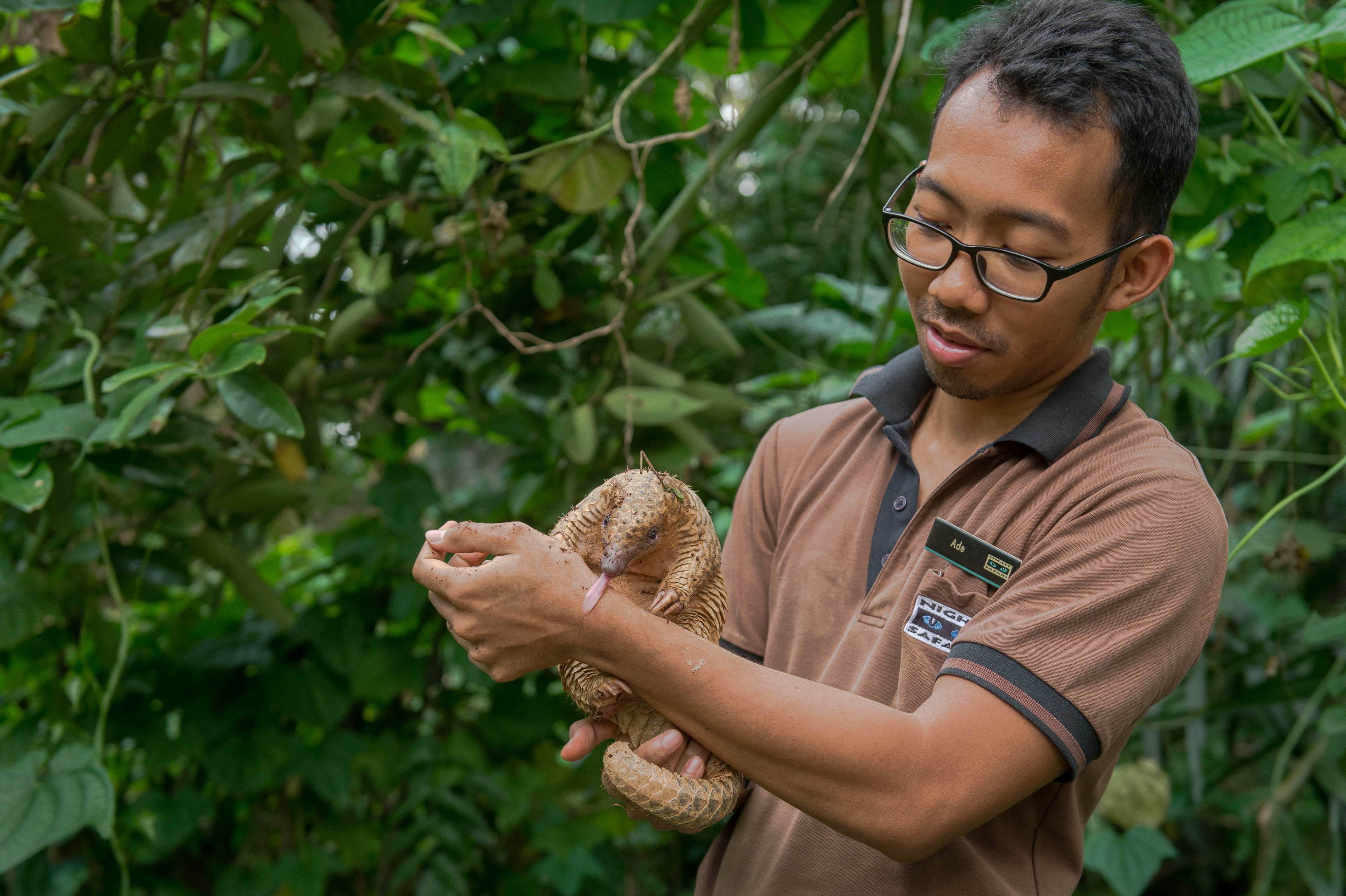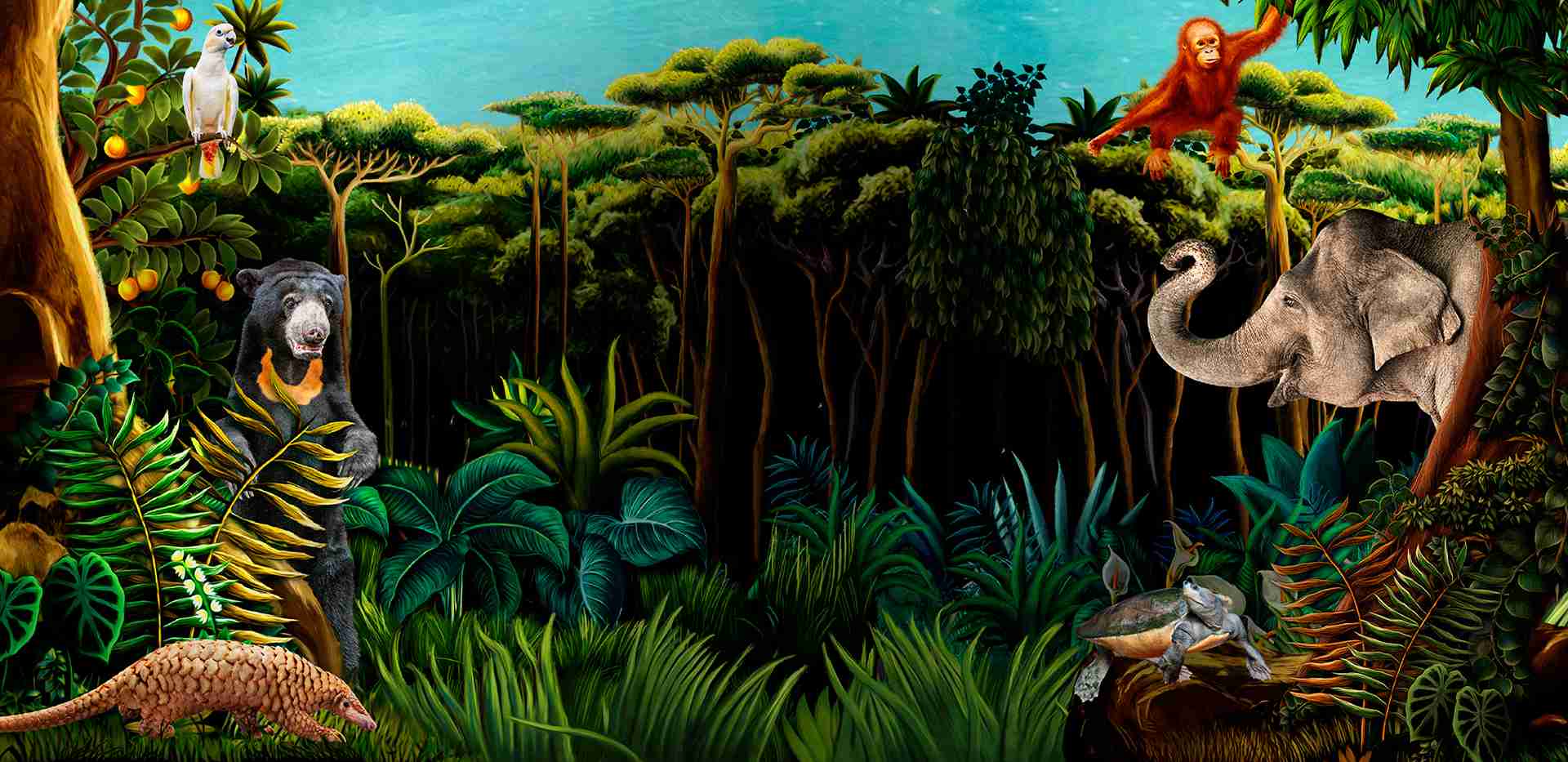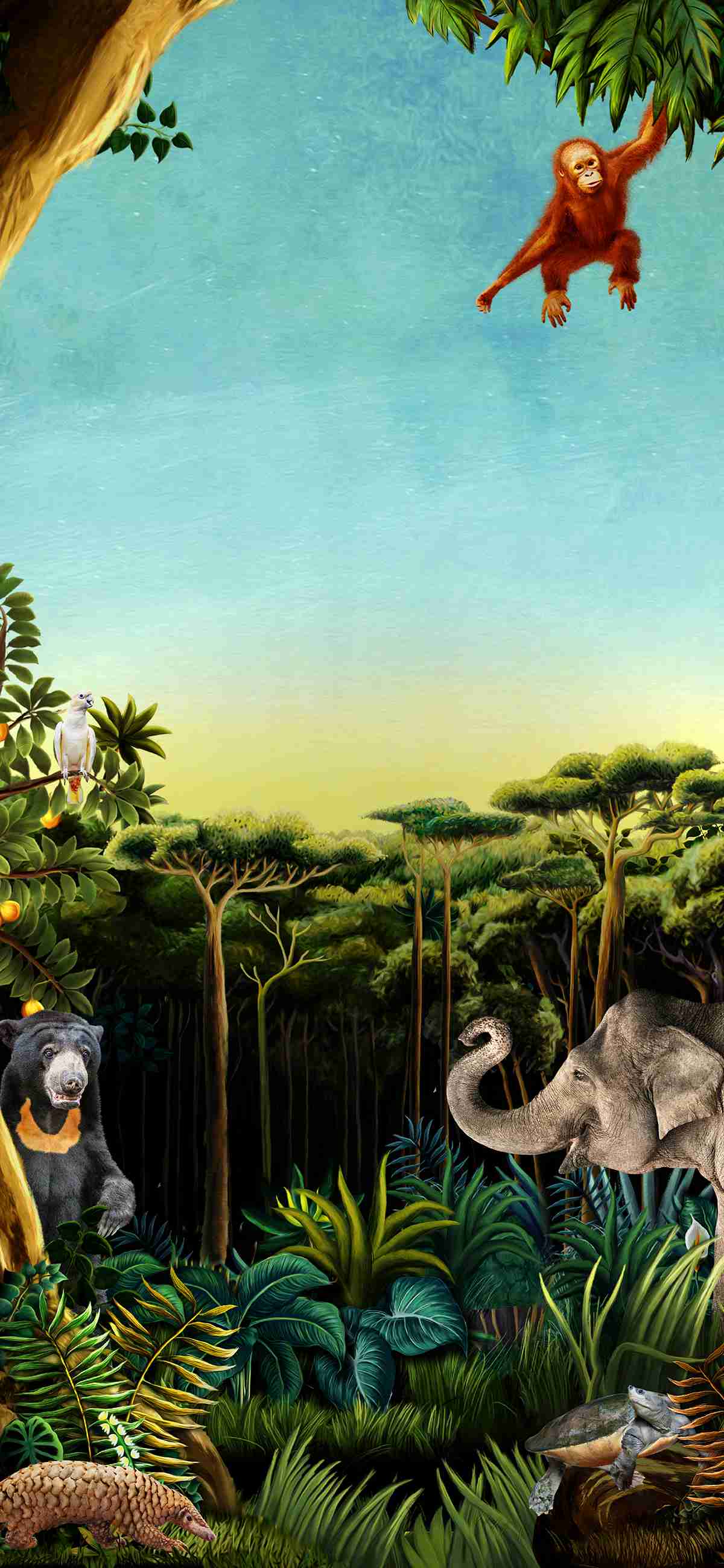Wildlife Reserves Singapore achieved double accreditations for high standards of animal care and welfare
Wildlife Reserves Singapore’s position amongst the leading zoological institutions in the world has been reaffirmed following its successful accreditation by two of the top international regional zoo associations. WRS is the first zoological institution to receive accreditation from both the European Association of Zoos and Aquaria (EAZA), and Zoo and Aquarium Association of Australasia (ZAA). Seen here: a keeper conditioning baby elephant Neha for health checks.
PHOTO CREDITS: WILDLIFE RESERVES SINGAPORE

As accredited members of EAZA and ZAA, WRS parks can participate more fully in managed breeding programmes across the two regions to ensure long-term sustainability of animal populations in human care. There will be increased opportunities to contribute to saving threatened species, including the critically endangered Sunda pangolin.
PHOTO CREDITS: WILDLIFE RESERVES SINGAPORE
Wildlife Reserves Singapore’s (WRS) position amongst the leading zoological institutions in the world has been reaffirmed following its successful accreditation by two of the top international regional zoo associations, attesting that the standards of animal care and welfare in Jurong Bird Park, Night Safari, River Safari, and Singapore Zoo are on par with top zoos in Europe and Australasia.
WRS is the first zoological institution to receive accreditation from both the European Association of Zoos and Aquaria (EAZA), and Zoo and Aquarium Association of Australasia (ZAA). Of the two, ZAA’s accreditation is focused heavily on animal welfare while EAZA’s covers animal care, commitment to conservation and education, as well as staff training, sustainability and operations.
Prior to these formal accreditations, WRS benchmarked its operations against best practices of top institutions and published standards. The Southeast Asian Zoos and Aquariums Association (SEAZA), which WRS is also a member of, is in the process of drafting its own animal welfare assessment system.
Dr Cheng Wen-Haur, Deputy Chief Executive Officer and Chief Life Sciences Officer, Wildlife Reserves Singapore, said, “While we have always set very high standards for ourselves, it was timely for our parks to go through a formal process of accreditation, to be audited by our peers in the zoological community. We received affirmation that many of the things we have been doing are of international standards, importantly we also learned much from the accreditation process. This experience would provide most valuable learnings as our own regional zoo association SEAZA is seeking to come up with our own assessment system for our member zoos.” Dr Cheng is also first Vice-President for SEAZA.
As accredited members of EAZA and ZAA, WRS parks will be able to participate more fully in managed breeding programmes across the two regions to ensure long-term sustainability of animal populations in human care. In addition, with our focus on conserving the threatened wildlife in Southeast Asia, WRS aims to play a bigger role in coordinating regional wildlife conservation projects in their native habitats. There will be increased opportunities to contribute to saving threatened species such as Southeast Asian primates, songbirds, hornbills and freshwater turtles, to name just a few.
“We are delighted to welcome Wildlife Reserves Singapore as the first international member of the Association,” said Ms Nicola Craddock, Executive Director, Zoo and Aquarium Association of Australasia. “The ZAA Accreditation Programme assesses animal welfare in zoos and aquariums. It is a progressive, science-based approach that champions welfare from the animal’s perspective. ZAA membership requires that all members be accredited, and by achieving this accreditation status, WRS has demonstrated a commitment to ensuring a high standard of welfare for all animals in their care.”
Ms Myfanwy Griffith, Executive Director, European Association of Zoos and Aquaria, said, “EAZA is proud to welcome Wildlife Reserves Singapore into our community. These are outstanding facilities doing great work in conservation, education and research, and we believe that they will make a strong contribution to our collaborative work and knowledge base.”
The accreditation process for WRS began in early 2017. Accreditation was received from ZAA in March 2018, and EAZA in April 2018. The reports pointed out high achievements in animal care and welfare, breeding of threatened species, staff training and conservation-communication. Where the parks needed improvement were back of house areas for animal presentation in Night Safari, River Safari, and Jurong Bird Park. Corrective actions where immediately put in place to the satisfaction of the assessment team.
Animal welfare has always been a top priority for WRS. With improved scientific knowledge, the operator of four world-class zoological parks is always seeking to enhance the quality of life of the animals in its care.
In 2017, the team published an updated Animal Welfare Code, a document which articulates WRS’ commitment to provide positive welfare states for her living collection and provides guidelines to staff on delivery of positive welfare for animals. Adopting the ‘Five Domains’ model for animal welfare, the statement is an assertion of commitment by animal carers to fulfill moral and professional responsibilities, and pledge by WRS management to provide required resources to achieve positive welfare for animals.

